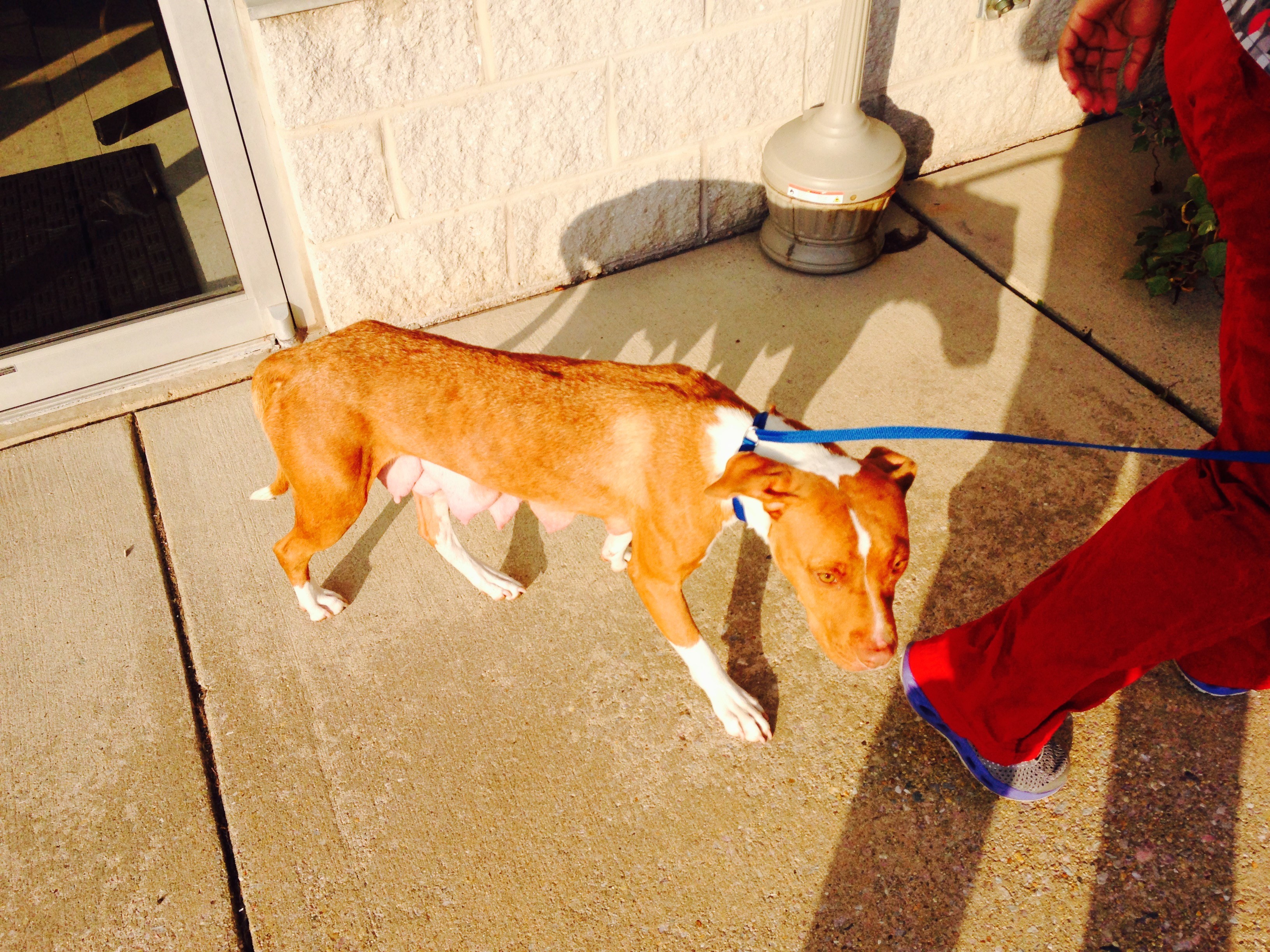Adopting a Trauma-Informed Approach in Animal Services
Friday Oct 21st, 2016

Recently giving birth to many puppies and rescued from reported neglect, Nyla makes her way to the Animal Control vehicle for a journey to BARCS.
Working long hours and multiple shifts, Baltimore City's Animal Control officers and staff respond to the health and safety of some of Baltimore's most vulnerable residents -- animals.
As the Baltimore City Health Department advances its mission to pursue health equity for all citizens and residents of Baltimore, the department has facilitated and supported trauma-informed trainings across multiple systems and settings. Adopting a trauma-informed approach means taking into account the prevalence of trauma in populations, recognizing and understanding the role that trauma plays in the lives of the individuals being served and engaged, responding by putting knowledge into practice and resisting re-traumatization.
Often overlooked and forgotten, Baltimore's animal residents face tremendous trauma from abuse, neglect, and even death at the hands of humans, other animals and their environmental conditions. Animal Control officers have to often be the voice for animals that face grave danger in the midst of everyday survival.
On Thursday, October 20, 2016, the Bureau of Environmental Health and the Office of Youth Violence Prevention (OYVP) teamed up to facilitate a trauma-informed training with Animal Control officers and staff. With an 8:30am call time, the day started out with William Kellibrew IV, director of OYVP joining an officer by the name of "Jess". They both responded to several calls which included transporting an alleged abused dog to safety, searching for a reported stray cat in a vacant row house, responding to a report of a dog reportedly malnourished and mishandled by the owner and a dog whose health, physical and emotional safety was in danger.
The highlight of the ride-along, however, came when Jess decided to remove a dog from a home where there was reported abuse and unsanitary conditions. The scene nearly became dangerous when an owner of the dog did not appreciate the impounding of his dog. While that situation ended up with the dog finally safe and in the hands of a caring staff at the Baltimore Animal Rescue and Care, Inc., the day had just begun.
.jpg)
The abuse and neglect of a dog can often be a gateway to abuse, neglect, domestic violence and other victimizations and trauma in the human population and often times these victimizations are witnessed by staff and others on a daily basis. What should be their approach? How does one cope with the witnessing and experiencing of daily situations that call for a compassionate and compliance-based response. These were the key topics that were addressed during the three hour length training where sometimes you could have heard a pin drop from the realization of how trauma can impact not only the animals, but also their caretakers including the staff and officers in Animal Control.
To date, more than 1500 Baltimore City employees have been trained in a trauma-informed approach and Animal Control has been added to that widening list.
The mission of the Office of Animal Control is to enforce city and state codes, rules, and regulations and to investigate animal neglect and cruelty cases for the purpose of protecting the health and safety of Baltimore’s human and animal residents.
The Office of Animal Control operates 24 hours a day, 7 days a week. It receives an average of 65 calls a day and approximately 25,000 complaints annually.
Animals picked up by Animal Control are turned over to the Baltimore Animal Rescue and Care Shelter, Inc. (BARCS) to find their owners or to find new owners if deemed adoptable. Call 911 if there is an emergency or dial 311 for all other animal-related calls and complaints.
The Office of Youth Violence Prevention is to end the epidemic of violence by using evidence-based, public health and human service models that impact underlying health, social, and economic disparities, through effective advocacy, collaboration, and programming for, and in partnership with youth, families, and citizens of Baltimore.
For more information on the Office of Animal Control visit http://health.baltimorecity.gov/programs/animal-services
For more information on the Office of Youth Violence Prevention visit http://health.baltimorecity.gov/programs/violence-prevention
.jpg)
